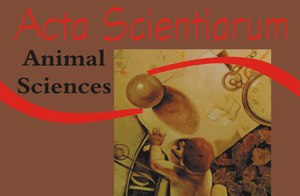The effects of supplementation with different protein: carbohydrate ratios on body composition, carcass characteristics and protein and energy deposition efficiency of young were assessed. Twenty-four Nellore calves (132.5 ± 5.5 kg and 90-150 days of age) were kept on pasture for a 430 day experimental period. The treatments were: Control = mineral mixture only; HPHC = high-protein and high-carbohydrate supplement; HPLC = high-protein and low-carbohydrate supplement; LPHC = low-protein and high-carbohydrate supplement; LPLC = low-protein and low-carbohydrate supplement. Four animals at begning and 20 animal at end of experiment were slaughtered to evaluate the carcass composition. Control bulls had the lowest (p < 0.05) intake of ME (9.8 Mcal day-1) with no difference (p > 0.05) between supplemented bulls (13 Mcal day-1). Although non-supplemented bulls had less (p < 0.05) retained protein, retained energy (RE), body weight gain and dressing percentage, differences were not observed (p > 0.05) between supplemented bulls. High-carbohydrate supplements were associated with more (p < 0.05) RE (596.2 Mcal) than low-carbohydrate supplements (515.5 Mcal). Differences were not found (p > 0.05) in the energy efficiency between the groups. Therefore, supplementation increases the intake and retention of protein and energy without changing the retention efficiency.
associative effects; beef cattle; calf; grazing; multiple supplement; production











